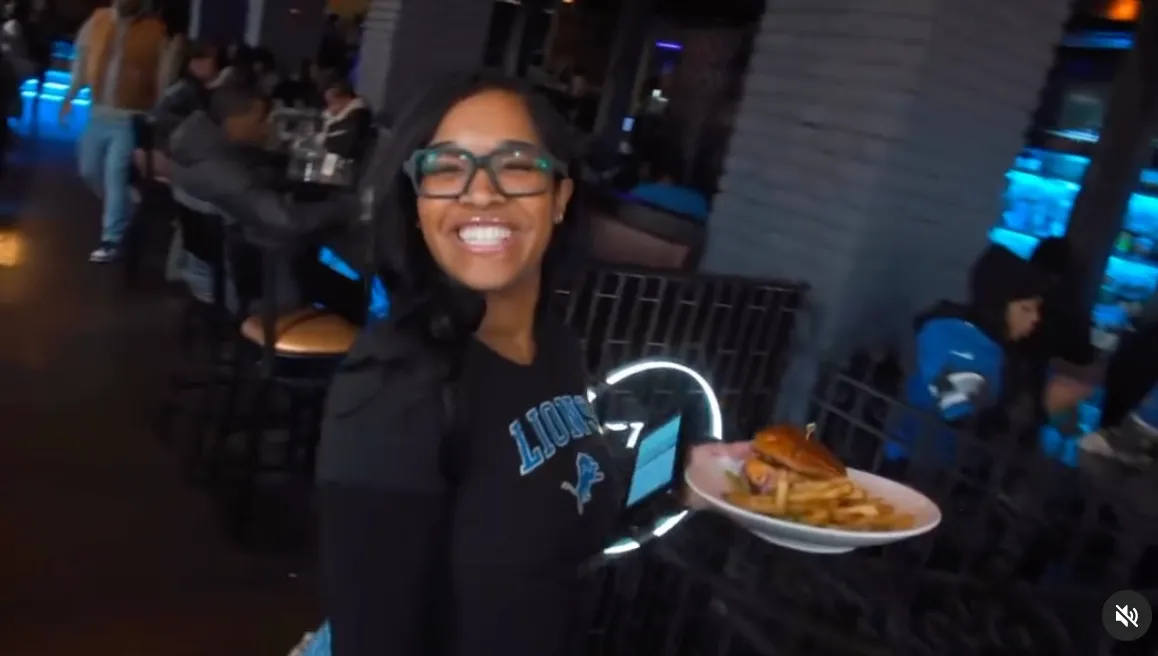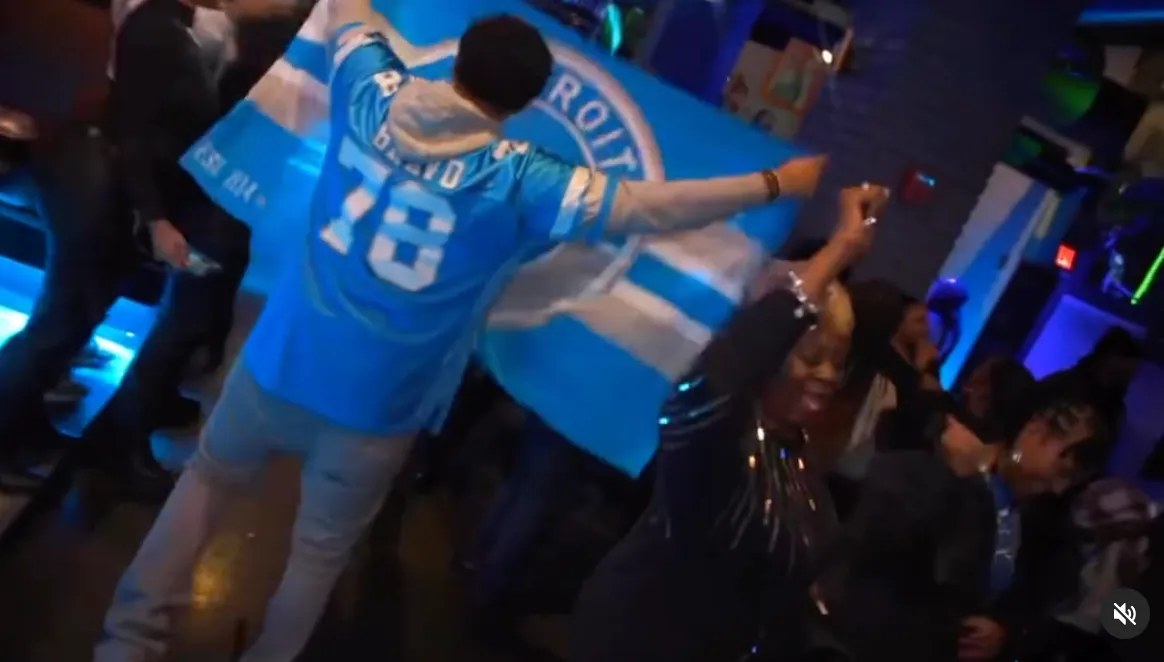The New York Times ran a story about local businesses in Detroit without mentioning any Black-owned businesses.

A waitress serving food at District Seventy8.
In the recent New York Times story, “Detroit Businesses Are Loving the Lions’ Playoff Run,” readers can get a taste of the jubilant aura currently enveloping Michigan’s largest city due to the Detroit Lions’ playoff success. As a result of the victories, local businesses near the Ford Field stadium are also benefitting from the once-beleaguered team’s triumphs.
However, there’s one glaring omission in the article — there are no Black-owned businesses mentioned in the story.
In a city that is not only over 75 percent Black, but has been both historically and colloquially referred to as the “Blackest city in America,” it is a noticeable oversight for the “newspaper of record.”
It’s not as though there are no Black-owned businesses in the area. Two days prior, Lyndsay C. Green, restaurant and dining critic for the Detroit Free Press, wrote about her bar crawl of three Black-owned bars — all of which are near the Ford Field stadium. The Great Lakes Burger & Pizza Bar, Savannah Blue, and Bert's Marketplace are just a few other spots locals frequent nearby. Some of these spots have been home to Lions fans for years.
This omission did not go unnoticed. Ken Coleman, Detroit historian and senior reporter at the nonprofit politics news site Michigan Advance, voiced concerns over the discrepancy on Facebook. “Detroit is 77% Black. 57% of the NFL is Black,” he wrote. “Not one African-American-owned business mentioned in this New York Times piece. Wow!”
What’s more perplexing is that the New York Times apparently reached out to at least one Black business for the story — Cutter's Bar & Grill in Detroit’s historic Eastern Market neighborhood. “I'm very disappointed to hear this,” Chimika Harris, manager at the pub, wrote in response to Coleman’s post. “The NYTimes did a interview with me for this on Friday.”
Cutter’s, which opened in 2004, has seen both the joy and pain of Lions fans over the past 20 years — including the brutal 2008 season where the team went 0-16. But the owner, Charles Nolen, said Cutter’s, along with Bert’s Marketplace, were the catalysts to bringing Lions fans to downtown Detroit. “We were kind of the draw for the younger generation at that time, 20 years ago, coming downtown to Eastern Market.”
Today, Cutter’s is benefitting from the Lions’ deep run in the playoffs. “Our numbers are definitely up,” Nolen explained, referring to Cutter’s financials. “The numbers have probably doubled during the playoffs.”
The same is true for Central Kitchen + Bar in downtown Detroit, which has “definitely seen an increase in activity,” according to owner Dennis Archer Jr., who said the restaurant had to extend hours last Sunday to accommodate the demand of diehards who came before the game and those who wanted to watch. “All of this has led to an increase in revenue during the slowest time of the year for us,” Archer Jr. said.

Fans celebrating a Lions touchdown.
Kenny Valentino, owner of the nearby resto-lounge District Seventy8, agreed.
“Historically, across food and beverage establishments, you would typically see a slower January,” Valentino, who opened District Seventy8 about three blocks from Ford Field last February, explained. “You’re coming off the holidays, people aren’t spending money, it’s cold.”
“This makes it a little more complicated to hit your budgets and goals. But I'd say with the success of the Lions, they've helped us meet and exceed those goals weekly.”
Prior to the Lions' win over the Tampa Bay Buccaneers last Sunday, the Free Press published a story on the projected $20 million economic impact the matchup would have for the city of Detroit. Although the Lions are set to face the San Francisco 49ers on Sunday in California, fans will be able to watch the team play from a variety of bars in downtown Detroit — meaning more money will be spent within the city’s limits.
Black Detroiters, who feel left out of much of the narrative surrounding the city’s recovery, were skeptical of how much they would benefit from it. It’s hard to blame them as news outlets continue to fawn over the city’s apparent economic resurgence without including the voices of those born and raised there.
But this is not all that surprising to Detroit’s Black business owners.
Archer Jr. said that it was “unfortunate” that Black businesses in Detroit are often overlooked despite the legacy restaurants like Cutter’s, Flood's Bar and Grille, Cafe D'Mongo’s Speakeasy, and others have paved.
“Because the city is majority African-American, because of the history of how the city became that way, and because of the number of strong purveyors here, it’s unfortunate when we are not equally represented in the narrative because we are such a strong part of the foundation, the backbone, and story here,” Archer Jr explained.
Valentino agreed.
“With all the revitalization in Detroit, the small, minority, Black-owned businesses are always left out,” he said.
“It does not surprise me.”

